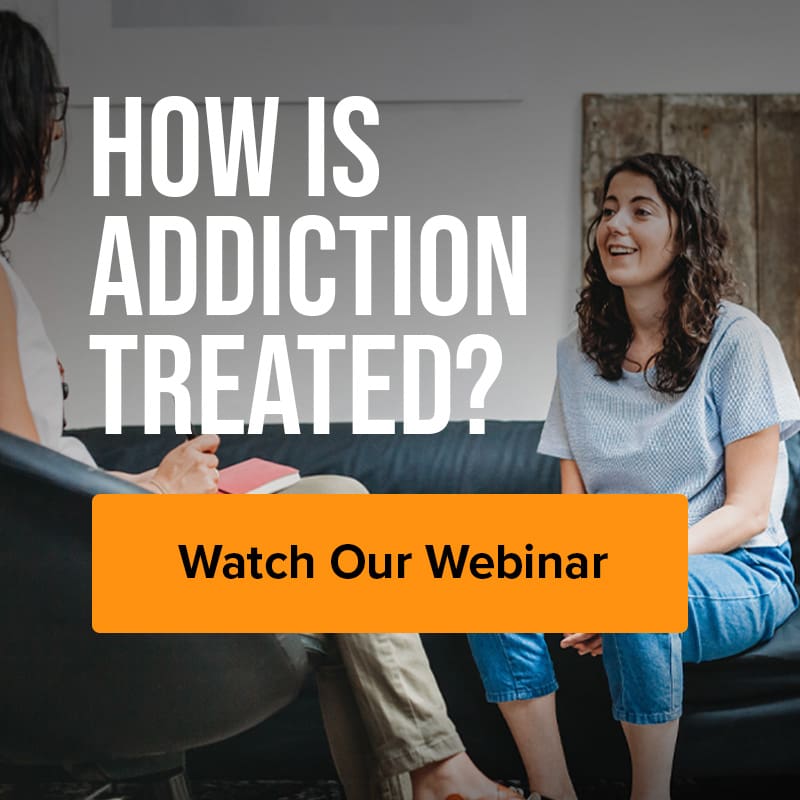November 26th through December 2nd is National Addictions Awareness Week and we would like to talk about the stigma associated with addiction, why it’s a problem, and how we try to challenge it.
Negative Stereotypes Make Stigma and Shame Worse
Generally, a stigma is a mark of shame; the stigma associated with addiction and substance use disorders (SUD) is very harmful because it prevents people from acknowledging that they have problems and from seeking treatment when they need it. The stigma associated with addiction and SUDs is largely the result of negative portrayals in the media that stereotype individuals with addictions as bad people with moral failings. Some symptoms of addiction and SUDs, such as impulsive behavior, aggression, or poor judgment, can sometimes lead to antisocial behaviors. However, the stigma perpetuates and exacerbates the private shame of people with active addictions and SUDs, often increasing the severity of their problems.
However, with the appropriate clinical interventions, based on scientific evidence and addiction medicine, many of the stereotyped negative behaviors associated with addiction and SUDs can be eliminated. Unfortunately, the dynamic between the public stigma and the personal shame of people with addiction and SUDs raises a barrier that makes it more difficult for people to get the treatment they need.
Stigma Is a Major Barrier to Treatment for Those in Need
Due to the stigma that remains prevalent in Canadian culture, addiction and substance use disorders (SUD) are often considered private matters and only 1-in-10 Canadians receive the treatment they need to address their problems. The stigma causes under-reporting by individuals, under-diagnosing by medical professionals, and ultimately under-funding and under-treating by both the government and the private sector. If you compare society’s response to ailments such as cancer, diabetes, and heart disease, the effects of the stigma associated with addiction and SUDs becomes alarmingly apparent. Addiction and SUDs, especially given the ongoing opiate crisis, are among Canada’s most serious public health problems and sufficient resources are not being dedicated to address them.
Challenging Stigma to Increase Access to Treatment Is Our Duty
Despite major steps forward in understanding addiction and substance use disorders (SUD) they remain marginalized by the mainstream healthcare system. This begins with a lack of education and awareness in medical school and the lack of multidisciplinary healthcare education.
At EHN Canada, we are committed to challenging the stigma and negative stereotypes associated with addiction and SUDs. As professionals responsible for helping our clients resolve their private shame, we feel it is our duty to challenge the stigma at every opportunity we have. Anti-stigma work encourages more people with active addictions and SUDs to overcome their shame and reach out for help; it also helps people in recovery sustain their recoveries.
We try to reduce stigma by educating the public so that they understand the following two important points:
- Recovery is possible to achieve through evidence-based treatment programs with high success rates.
- Every person who achieves recovery experiences great rewards for themselves, and also improves the lives of everyone around them and improves the society in which they live.
If we can successfully persuade the public regarding the above two points, we can help shape public policy on addiction and increase government investment in treatment; with a sufficient shift in public opinion, hopefully, private investment in treatment will also increase. Together, these shifts will provide more access to treatment for people in need.
Reducing Stigma Through Our Alumni Communities
Through our active and vibrant alumni communities, EHN Canada supports and celebrates the thousands of people in long-term recovery who we have had the privilege of helping. EHN Canada also promotes community spaces across the country where people in recovery can have the support of their peers. Interpersonal connections are vital to reducing stigma and we see our alumni as a beacons of hope for people with active addictions and substance use disorders (SUD). EHN Canada has made it our mission to demonstrate that many people can recover from addiction and SUDs. By spreading our message of hope, we seek to increase awareness that, with the correct treatment and support, addiction and SUD’s can be successfully managed for life.
Addiction Treatment in a Stigma-Free Environment
If you would like to learn more about the treatment programs provided by EHN Canada, enrol yourself in one of our programs, or refer someone else, please call us at one of the numbers below. Our phone lines are open 24/7—so you can call us anytime.
- 1-800-387-6198 for Bellwood Health Services in Toronto, ON
- 1-587-350-6818 for EHN Sandstone, in Calgary, AB
- 1-800-683-0111 for Edgewood Treatment Centre in Nanaimo, BC
- 1-888-488-2611 for Clinique Nouveau Depart in Montreal, QC

